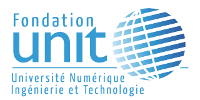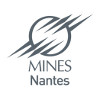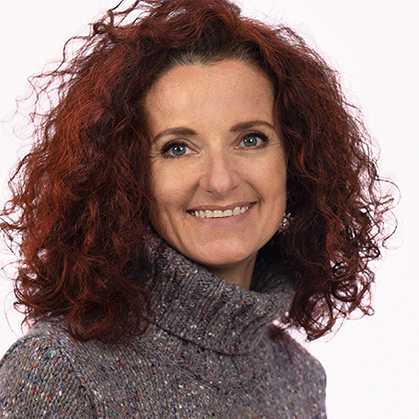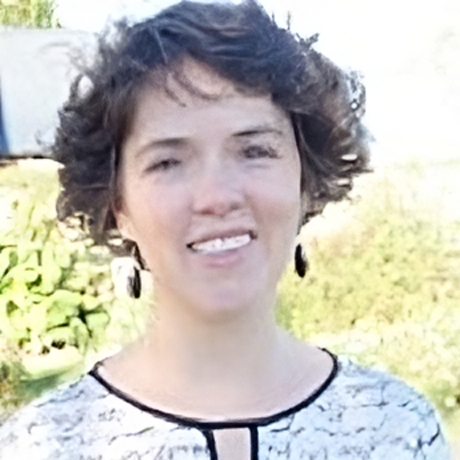To Flip Or Not To Flip - Discover the flipped classroom methodology
To Flip Or Not To Flip - Discover the flipped classroom methodology
To flip or not to flip? That is the question! Let’s walk together this path: how does flipped learning works? How to adopt this approach in teaching day life?
Course description
What is flipped learning? According to the Flipped Learning Network, it is a “pedagogical approach in which direct instruction moves from the group learning space to the individual learning space, and the resulting group space is transformed into a dynamic, interactive learning environment where the educator guides students as they apply concepts and engage creatively in the subject matter.”
In this MOOC you will have the chance to:
- learn the basics about flipped classroom;
- explore some shared experiences and identify key issues;
- start thinking about how to try it out in your course, using also the set of tools we will provide you with, and - why not – any useful open resource you find online.
The MOOC is enriched by many testimonies coming from international experiences at University level, with a special focus on STEM subjects.
Total workload of the course: 13 hours
This MOOC is provided by Politecnico di Milano, in collaboration with UNIT (Université Numérique Ingénierie et Technologie), Ecol des Ponts ParisTech, Université de Lorraine and Mines Nantes.




Intended Learning Outcomes
By actively participating in this MOOC, you will achieve different intended learning outcomes (ILOs).
Week 1 – Flipped classroom and teaching experiences
-
View relevant flipped classroom experiences from around the world
ESCO: education science -
Define your own learning outcomes for this course
ESCO: use learning strategies - Get familiar with flipped classroom methodology
Week 2 – Reflections on challenging and successful experiences
-
Identify the challenges that may be encountered while using a flipped strategy
ESCO: performing risk analysis - Identify some key factors for success
- Recognize the effects flipped classroom may have on students
Week 3 – …seriously, what is it? The “core”
-
Look at flipped classrooms from a theoretical point of view
ESCO: evaluate training -
Identify the strengths and weaknesses of flipped classroom
ESCO: think analytically -
Identify teaching strategies adapted to flipped classroom
ESCO: advise on teaching methods -
Become aware of the effects on students of this approach and how it influences assessment
ESCO: consult students on learning content
Week 4 – Let’s try
-
Define the objectives of your flipping strategy
ESCO: teaching and training -
Identify the activities you could flip
ESCO: instructional design model -
Identify teaching strategies adapted to flipped classroom
ESCO: advise on teaching methods -
Design what to do before, during and after class time
ESCO: apply teaching strategies ESCO: compile course material ESCO: conduct educational activities
The pedagogical approach adopted in this MOOC
-
Show the importance of the teaching approach you adopt in your courses
ESCO: education science ESCO: pedagogy -
Put forward arguments about the mix between your role as a teacher, the teaching and learning strategies adopted, and the flipped classroom approach
ESCO: teaching and training
Prerequisites
No prerequisite knowledge is required for this course, even if previous experience in didactics and teaching will be helpful. The course is mainly addressed to professors and teachers, at all levels, who are willing to think about some innovation in their pedagogical approach.
Activities
Over and above consulting the content, in the form of videos and other web-based resources (the reading path), you will have the opportunity to discuss course topics and to share ideas with your peers in the Forum of this MOOC (the communication path). The forum is freely accessible and participation is not guided. You can also perform design activities to build your own courses using templates and suggestions about new assessment strategies (the production path).
In addition to these different types of activities and levels of involvement, the course entails questions in the form of self-assessment quizzes or as hints for reflection, as well as discussion activities in the Forum and design activities in Week 4. You are not required to answer these questions or participate to activities to complete the course, but we strongly believe they offer you a concrete opportunity to improve your knowledge! Instead, the quiz you will find at the end of the core WEEKs (except WEEK 0 and the final section on the pedagogical approach) will be evaluated.
Section outline
-
Week 0 is an introduction to the MOOC, its structure and the main subject we are dealing with.
-
From week 1 to week 4 you’ll find the core part of the MOOC, the flipped classroom: you’ll start from concrete experiences and, through a deep reflection on them and a guided analysis of the theoretical background, you’ll reach the “hands on” part, in which you’ll have the chance to start using this approach for your own course’s design.
-
From week 1 to week 4 you’ll find the core part of the MOOC, the flipped classroom: you’ll start from concrete experiences and, through a deep reflection on them and a guided analysis of the theoretical background, you’ll reach the “hands on” part, in which you’ll have the chance to start using this approach for your own course’s design.
-
From week 1 to week 4 you’ll find the core part of the MOOC, the flipped classroom: you’ll start from concrete experiences and, through a deep reflection on them and a guided analysis of the theoretical background, you’ll reach the “hands on” part, in which you’ll have the chance to start using this approach for your own course’s design.
-
From week 1 to week 4 you’ll find the core part of the MOOC, the flipped classroom: you’ll start from concrete experiences and, through a deep reflection on them and a guided analysis of the theoretical background, you’ll reach the “hands on” part, in which you’ll have the chance to start using this approach for your own course’s design.
-
-
the final section focuses on the pedagogical approach applied in this MOOC as a whole. This section has been designed and developed by Université Numérique Ingénierie et Technologie. In this section you’ll have the chance, as a teacher, to reflect on the overall design phase of a course, as a meta-level.
-
Assessment
Your final grade for the course will be based on the results of your answers to the assessed quizzes. You have an unlimited number of attempts at each quiz, but you must wait 15 minutes before you can try again. You will have successfully completed the course if you score a total of 60% (or higher) in each of the assessed quizzes.
The maximum score possible for each quiz is given at the beginning of the quiz. You can view your score in the quiz on your last attempt or on the 'Grades' page.
The course entails also questions, in the form of self-assessment quizzes or as hints for reflection, as well as discussion activities in the Forum and design activities in Week 4. You are not required to answer these questions or participate in activities to complete the course, but we strongly believe they offer you a concrete opportunity to improve your knowledge!
Certificate
You can achieve a certificate in the form of an Open Badge for this course, if you obtain, at least, 60% of the total score in the graded quizzes and by filling in the final survey.
Once you have completed the required tasks, you will be able to access ‘Get the Open Badge’ and start issuing the badge. Instructions on how to access the badge will be sent to your e-mail address.
The Badge does not confer any academic credit, grade or degree.
Information about fees and access to materials
The course is delivered in online mode and is available free of charge.
Course faculty

Paola Corti
Paola Corti is a Project Manager at Politecnico di Milano - METID; she is an instructional designer involved in MOOCs design and production for POK platform. She coordinated the design of the course, involved international testimonials, together with other curators, in order to collect the experiences available in this MOOC, and she kept together the design and the production groups… and many are things needed : )

Ariane Dumont
Ariane Dumont, professor at the Western Switzerland University of Applied Sciences, Educational Developer and responsible for promoting innovation in pedagogy. She has trained over 300 faculty members to implement the flipped classroom in their teaching. She will nicely guide you through some interesting models, which can support you in exploring and experimenting the flipped classroom.

Aude Pichon
Aude Pichon, Advisor in Pedagogy in the Center for Professional Development in Education at the Ecole des Mines in Nantes and Coordinator in charge of the pedagogical development within uTOP(UNIT) in France, she not only advises on teacher training projects, but also develops them and leads them either face-to-face or remotely.
Contact details
If you have any enquiries about the course or if you need technical assistance please contact pok@polimi.it. For further information, see FAQ page.